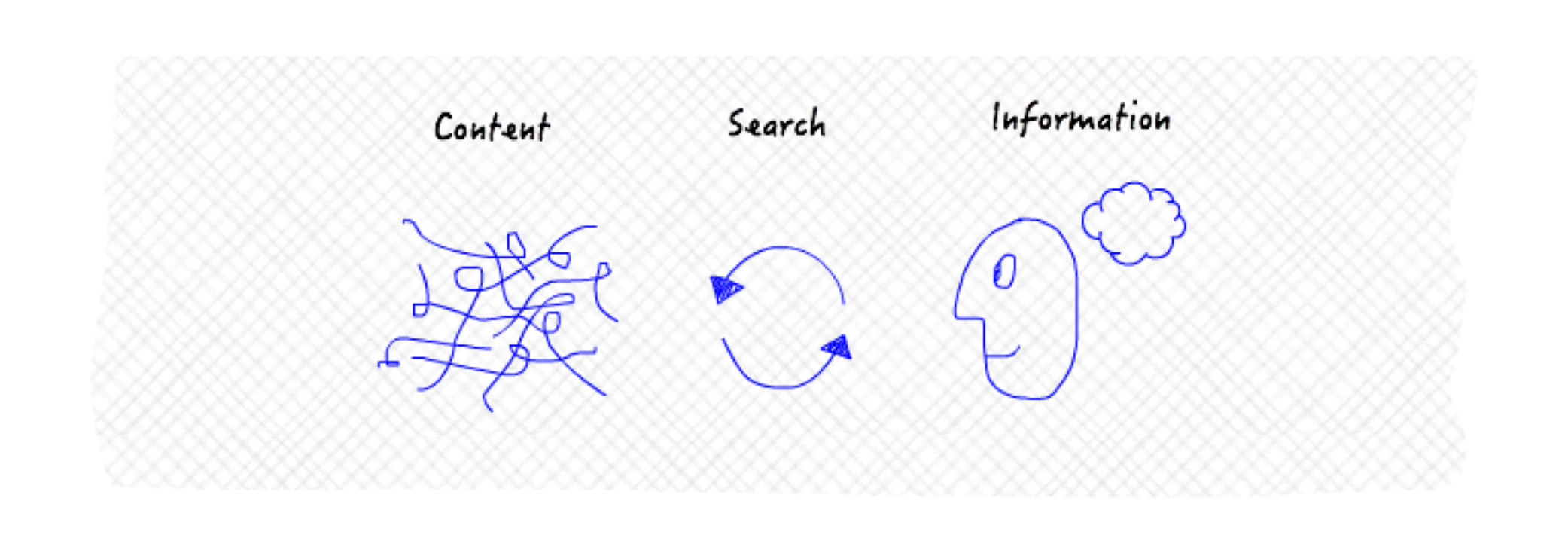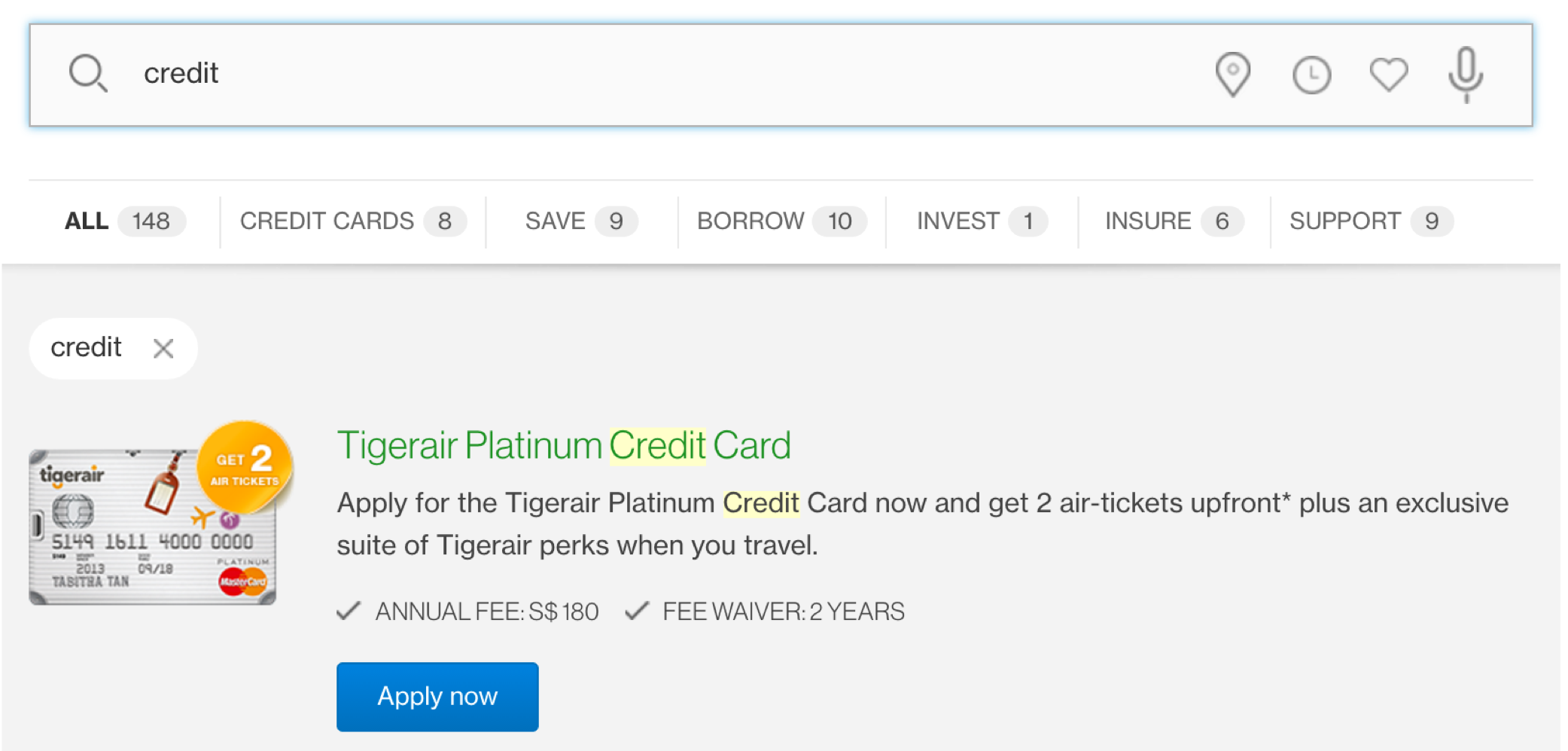Search fundamentals
As a search person, you must be clear on fundamental search concepts. Don’t be fooled into thinking that because you use Google daily, you know all there is to know about search.
What is search?
Search is finding and using information to get a job done. For example, searching for the travel claims policy before travelling to know which expenses are reimbursable and which are not. The success of the ‘job’ is not to get a document on travel policy but to use the information gained to make well-informed decisions.
The word ‘information’ here means the interpretation or understanding the user gets after the search experience. The ‘content’ is what the user goes through to get information. Content is what is provided (e.g., document or webpage); information is what the user understands.
Why search?
Organisations have become voracious creators and consumers of content, and the volume and velocity will only increase.
The information overload has led to anxiety caused by:
- Not finding existing information
- Taking too long to find the correct information
- Being unable to discover related information
- Not finding the right people with the right expertise
- For newcomers struggling to learn a ‘messy’ environment
In this age of apps and chatbots, people are used to a search-first mindset inspired by a Google-type simplicity (or Perplexity-type chatty) use of search. However, when the same people go to work, they find a very different world.
A 2023 report by Coveo found that employees now spend approximately 3 hours each workday searching for information, a decrease from 4 hours last year. This report also noted that nearly 89% of employees search multiple data sources, which can further increase the time spent looking for necessary information.
Another study by Glean revealed that employees waste at least 2 hours each day searching for the documents, information, or people they need to complete their tasks. This inefficiency is particularly frustrating for workers, with many considering leaving their jobs due to difficulty accessing necessary resources.
Why not just use Google?
The search experience Google offers millions of users is great but general. You, however, may want to offer your customers or staff great and specific search experiences. For example, if you are a bank, Google may link to the credit card page on your website, but your site search experience could include relevant details and even offer a call to action.
The challenge is educating project owners and sponsors that specific search experiences are better than general ones. In the world of business, context matters.
This book contains many context-rich examples that you can use to argue for specific search experiences.
What is enterprise search?
Enterprise search refers to a wide range of technologies you can subscribe to or buy to help design great search experiences.
Wikipedia defines enterprise search as “the practice of making content from multiple enterprise-type sources, such as databases and intranets, searchable to a defined audience.” This definition focuses more on ‘enterprise’ than on ‘search’. Yes, organisations are messy, content is all over the place, and there is a need to make all the content searchable. But the end game should still be the search experience.
The systems in the enterprise search stack depend on what you want to achieve. If you have a small collection of web pages, then you may only need a good search engine. However, you may need to add taxonomy management and content analytics systems if you have millions of office documents.

